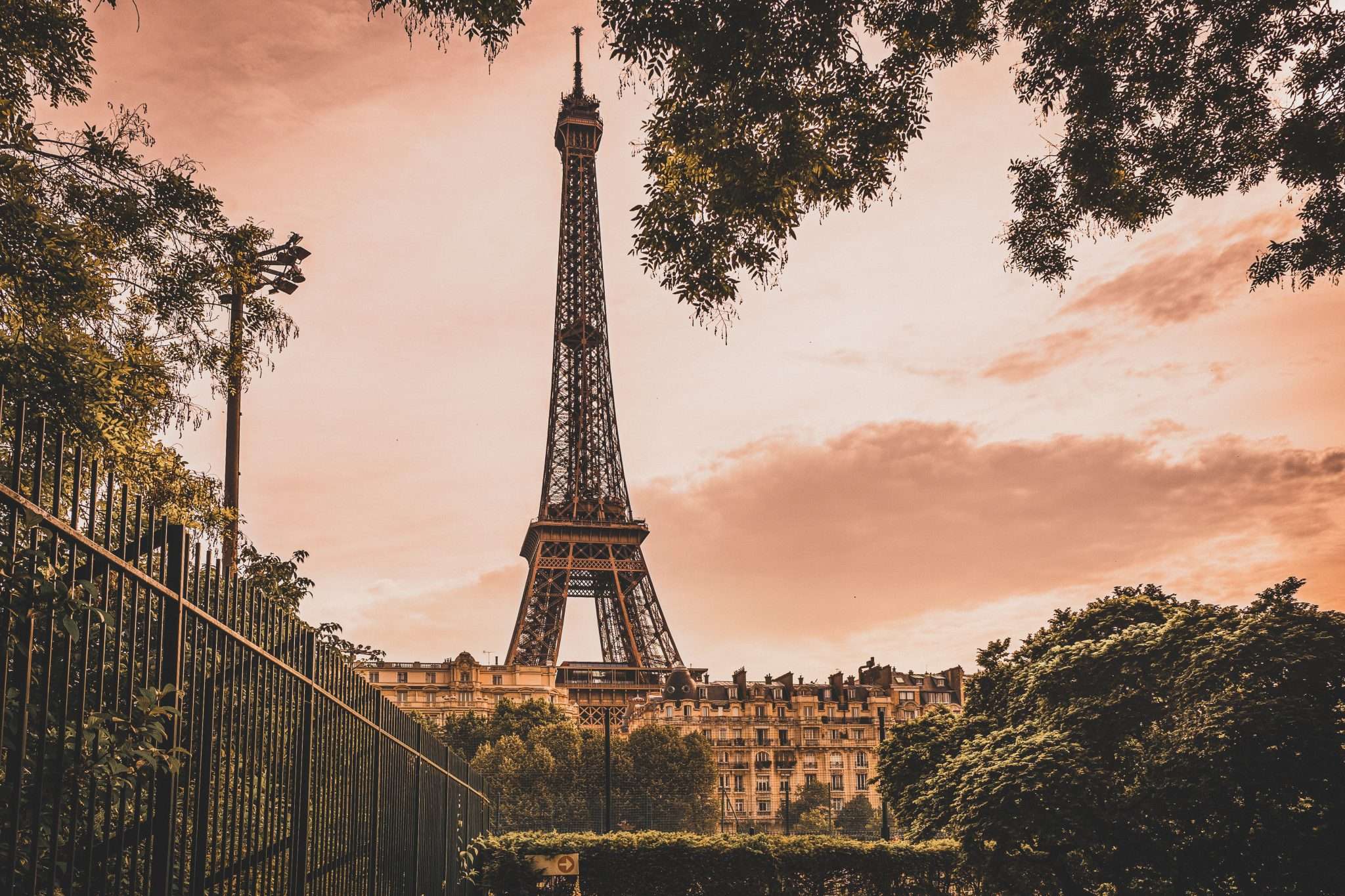From reimagining the Champs Elysées in Paris to ditching all single-use plastic, France is going all in on its sustainability initiatives.
The Paris Climate Accord helped to put climate action on the global map. Since it was signed by nearly every nation in 2015, there have been great strides toward reducing our global climate impact — even, and especially — in the country that made it famous.
In some ways, France’s sustainability initiatives are as old as time: slow food, regenerative and small-scale farming, preservation of nature, and bike and pedestrian-friendly urbanscapes. But, like the rest of the world, too, modernity’s dependency on industry has earned the country a spot on the world’s top 20 biggest emissions-producing countries.
But things are changing.
France is now considered a world leader in promoting sustainability. Last year, it ranked seventh overall in the Global Sustainability Index U.S. was 41st). In 2019, the Economist’s Sustainable Tourism Index ranked France as the top country for its sustainability efforts. The Index considers how countries preserve social, cultural, and environmental capital.
President Emmanuel Macron “has signalled readiness to push French leadership on climate even more aggressively to protect the agreement that bears the name of the French capital,” Terry Slavin wrote in 2017. The country showed strong support for the UN’s 17 Sustainable Development Goals aimed at eradicating poverty, inequalities, and protecting the planet.
According to Slavin, France has achieved a high standard of living and quality of life “driven by inclusive social security systems (unemployment benefits, supplementary benefits and redistributive policy) and access for all to healthcare and basic goods and services (water, energy, quality food and education). The country has also developed state-of the-art public and private infrastructures (innovation and research, transport, communications, and cultural heritage).”
Here’s a look at five major drivers behind France’s sustainability efforts.
1. Greener cities
“The world’s most beautiful avenue,” the Champs Elysées in Paris, is getting a makeover as part of the city’s sustainability commitment. Paris Mayor Anne Hidalgo approved the new decade-long $305 million project, “Re-Enchanting the Champs Elysées,” earlier this year.
Over the course of the next nine years, the 2.3-kilometer strip that runs from the Place de La Concorde to the Arc de Triomphe will undergo a green transformation. Architect Philippe Chiambaretta and his agency, PCA-STREAM, are bringing the vision to life.
The project includes halving the space for cars and upping trees and green spaces, in what the agency calls “planted ‘living rooms.” The strip will also prioritize small, local shops rather than chain stores currently parked on either side of the avenue.
The move comes as public opinion of the iconic thoroughfare has been on the decline, according to a 2019 survey. Parisians, in particular, have chided the region for its congestion, pollution, and high-priced tourist attractions. The city’s proposal echoed the local concern. It cited the avenue as filled with “big international chains perceived as antiseptic and scarcely distinguishable.”
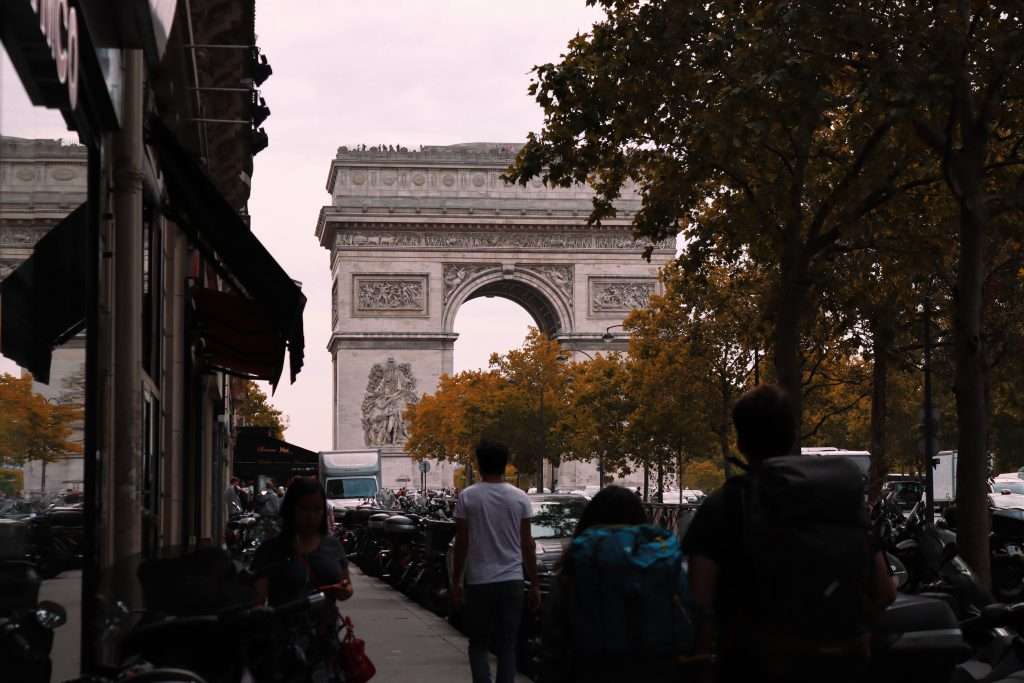
But the city hopes a greener space with fewer cars and more trees will have an impact. It’s seen shifts with similar endeavors across Paris, but none quite as lofty as this. The renderings show sidewalks doubling in width and bike paths on both sides of the street. Car lanes will shrink to four and car speed limits will also be reduced.
The Place de la Concorde will see extensive plantings, including tree-shaded lawns. The city will also take over streets entirely with grass and shrubs. This upgrade is expected to happen ahead of the 2024 Olympics. It will also allow for walking entirely in a green space between the Louvre and the Arc de Triomphe.
The city hopes the transformation will increase pedestrian traffic. “The mythical avenue has lost its splendor over the last 30 years,” the committee said in a statement. The 2019 survey found more than 70 percent of Parisians saw the Champs Elysées area as too trendy. Thirty percent disagreed with its long-standing “most beautiful” moniker.
“It has been progressively abandoned by Parisians,” the committee said, “and has suffered a number of crises: the gilets jaunes [anti-government], strikes, the health and economic crisis.”
2. Infrastructure and energy
The Champs is the most famous, but not the only road in France to go green. In 2018 in the southwest of the country, Vinci, a concessions and construction company, built a one-kilometer-long stretch of the A10 motorway between Pons and Saint-Aubin, out of completely recycled materials.
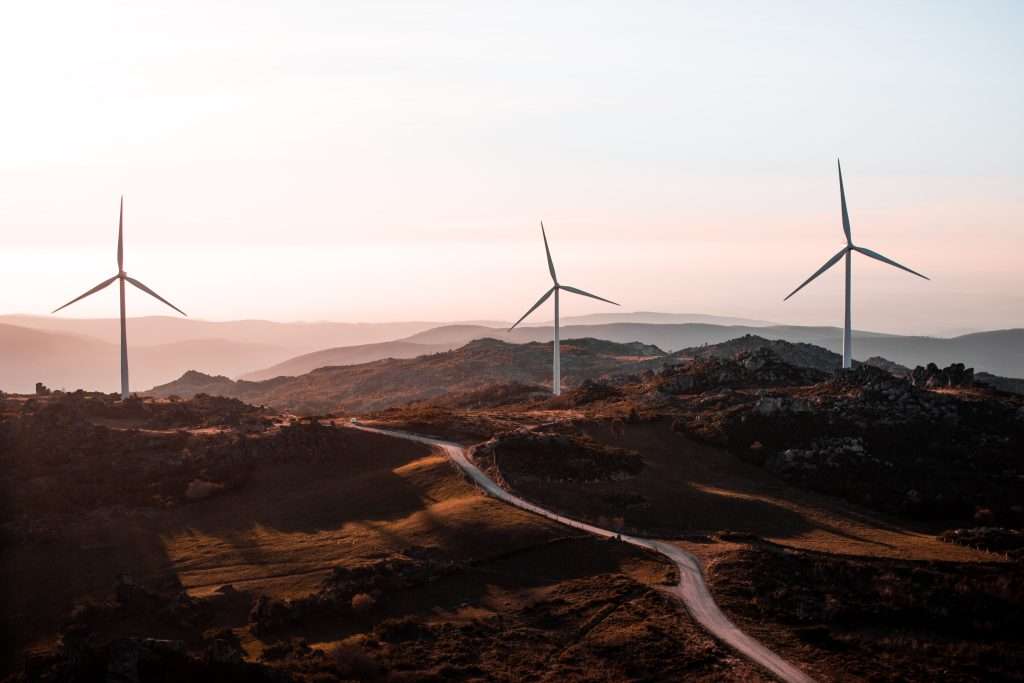
Before that effort, in 2016, the country debuted another sustainable one-kilometer stretch of road in the village of Tourouvre-au-Perche, in Normandy, made from solar panels. The road was built to produce enough power for the village’s streetlights.
France has also green-lit offshore wind and river projects, including two wind projects off Noirmoutier and Île d’Yeu islands, near Vendée on the western coast of France.
It’s all part of the country’s plan to double wind power by 2023. Near Lyon, a hydro turbine “farm” is being installed in the Rhône river. It’s the world’s first such effort and should generate enough power for 400 homes.
3. Vive le plants
The country known for its French Paradox — indulging in rich animal-based foods while diet-related health issues tend to be less common than in the U.S. — is even shifting how it eats in an effort to become more sustainable. And it’s getting help from the country’s top Michelin-starred chefs.
France and Michelin stars go together like, well, France and Michelin stars. The country is home to more Michelin-starred restaurants than any other country in the world, now at 630.
French-born chef Alain Ducasse has more Michelin stars than any other chef, holding 21 for his restaurants in France, Monaco, the UK, Japan, Hong Kong, and Macau.
Ducasse’s latest venture, Sapid, will be 95 percent plant-based. He’s positioning animal ingredients as “seasoning” instead of centerpieces. The chef aims to bring a spotlight on vegetables instead of France’s animal-heavy cuisine.
“I am convinced that the time has come to create a haute cuisine out of vegetables and cereal. It is a world of new flavors to explore,” he told Vogue in 2017. That was after he transformed the menu at his famous Plaza Athénée restaurant over the course of 18 months.
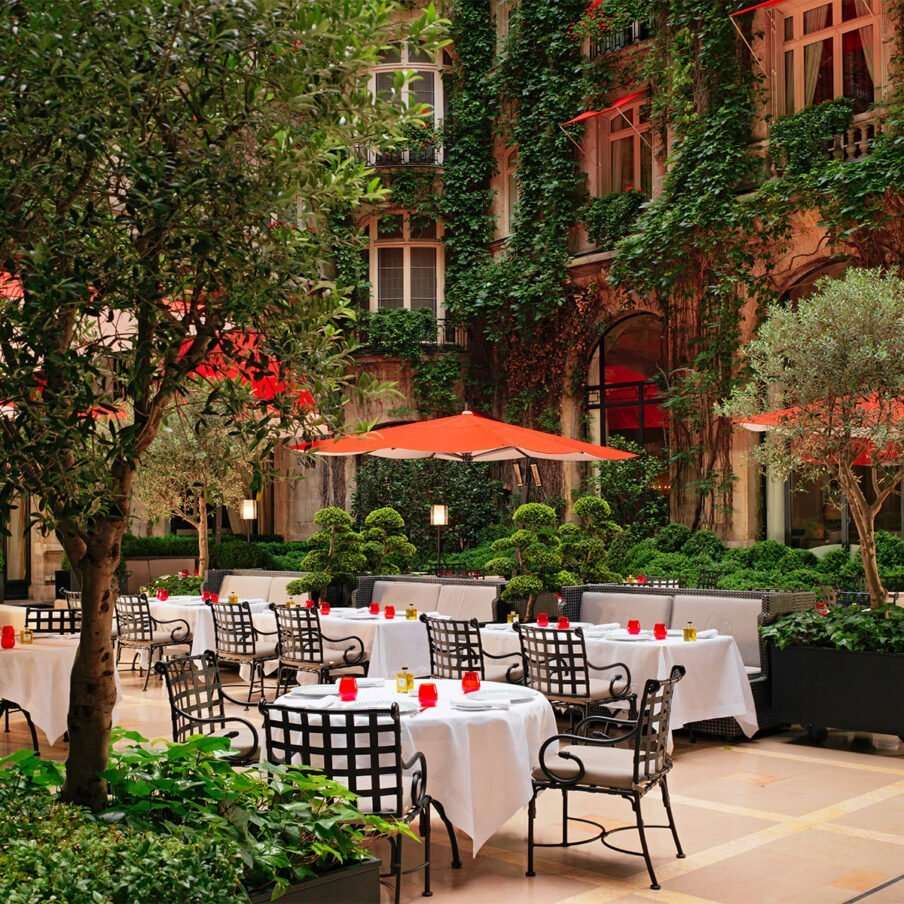
The country is also embracing novel tech like precision fermentation to replicate fine French cheeses. Last year the Paris-based startup Nutropy raised €2 million in a Pre-Seed funding round and Standing Ovation raised more than €12 million. Both are working with microbes to develop sustainable cheese that looks, tastes, and melts like French cheese.
But it’s not just fine dining and fancy cheese that’s bringing sustainability to French tables. The country has long been recognized as a leader in food sustainability, even despite its preference for animal products. The Food Sustainability Index ranked the country at the top of its list since 2016.
“France has been in the vanguard of policies and measures to reduce such losses,” Martin Koehring, the index’s author, said in a statement.
It has taken measures to reduce food waste; in 2016 it introduced legislation that required supermarkets to distribute leftover food to charities. It has decreased its food waste output to 67.2kg per person per year compared to more than 95kg per person in the U.S.
4. Eco-commerce
According to recent data published by Statista, 40 percent of French consumers have refused to purchase a product they deemed “not sustainable enough.”
The government agrees. Last year it passed a law aimed at decreasing household waste by 15 percent per inhabitant by 2030, and a 5 percent decrease in waste from economic activity. The law also aims to achieve 100 percent plastic recycling by 2025, and end all single-use plastic packaging by 2040.
French department store Le Printemps is also embracing sustainability. Through October, its shop windows will feature the slogan ‘Unis vers le beau responsable’ (Together for positive engagement). It’s highlighting sustainable products and encouraging shoppers to consider the environment when making purchases.

Part of the initiative is to spotlight French label Chloé, which has recently adopted its own sustainability initiatives.
The Haussmann branch’s Atrium will become “an open space whose façades will be clad in soft clay. [It will be furnished] with vintage items and other bespoke furniture made by local artisans carefully chosen by [Chloé]. The Fall/Winter 2021 collection has been inspired by daring new concepts, more socially sensitive and environmentally friendly.”
The stores will feature sculptures by Atelier Laps that incorporate materials including wood, paper, and fabric. And it will host conferences and workshops on sustainability and circularity initiatives.
France has also looked at initiatives to prevent stores from incinerating unsold clothes or sending them to landfills. These items would instead need to be donated or recycled.
The E.U.’s new efforts at curbing greenwashing could make French consumers even more discerning in the not-too-distant future.
5. Sustainable agriculture
France’s agroecology policy, is aggressive, too; its agriculture ministry says it “aims to shift agriculture towards the objective of combining economic, environmental and social performance.”
The country has been a world leader in banning a certain class of pesticides linked to the decline of key pollinators, including honeybees. In 2018 it banned all neonicotinoid-based pesticides in an effort to protect the vital pollinators.
By 2025, the agriculture ministry expects most of its farmers will be embracing additional sustainable practices like crop rotation to improve soil health, and the reduced use of chemical pesticides and herbicides.
France is showing that “improvements in agricultural performance should not come at the expense of environmental and social conditions,” the minister told the Thomson Reuters Foundation.
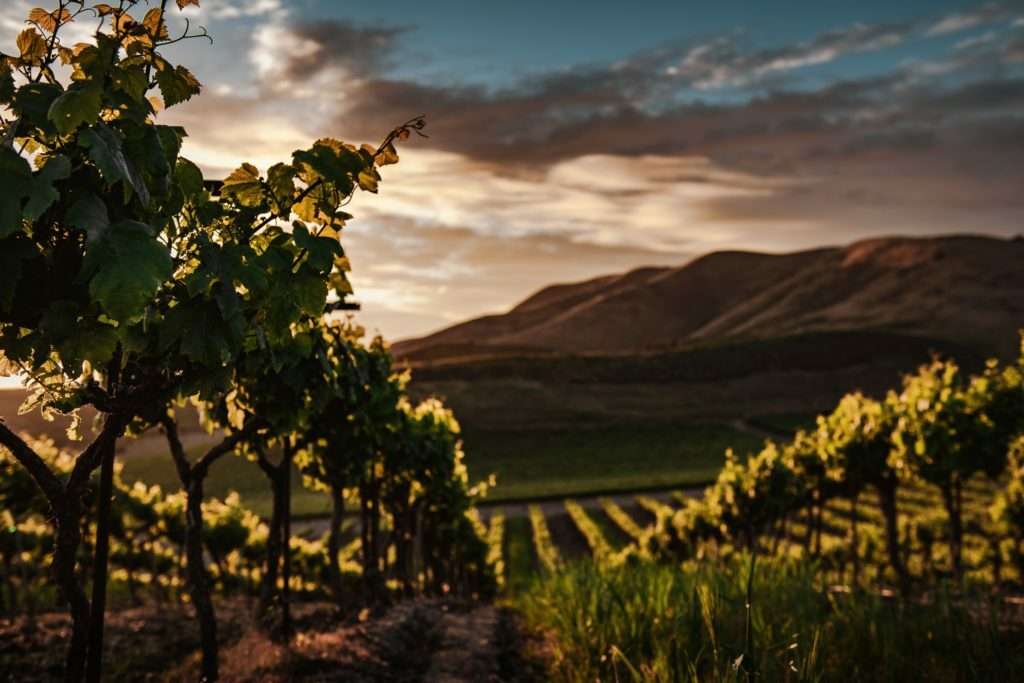
Winemaking has a long history in France. The second-largest wine-producing country (behind Italy) has been making wine for more than 2,600 years. Its current output is more than one billion gallons per year.
And while many of the vintners have been using sustainable and regenerative grape-growing methods for generations, a growing number have turned to chemical-based agriculture in the last half-century.
Wine grapes are among the top crops to be treated with pesticides today. These agrochemicals are risky for humans, wildlife, and the environment.
After a 2014 incident that sent students and teachers from a rural Bordeaux school to the hospital for pesticide exposure, the shift toward organic farming has accelerated across the country’s wine-growing regions.
But holdouts now have another reason to implement greener practices: taste. “Organic and biodynamic wines showed much higher quality,” Magali Delmas, an environmental economist at UCLA Anderson School of Management, said of recent research. “It’s another example of sustainable goods providing additional benefits to consumers.”
Whatever the reason, the shift is underway. Between 2001 and 2015, the number of wineries that had received third-party organic or biodynamic certifications doubled from 3.87 percent to 7.37 percent.
Related on Ethos:

